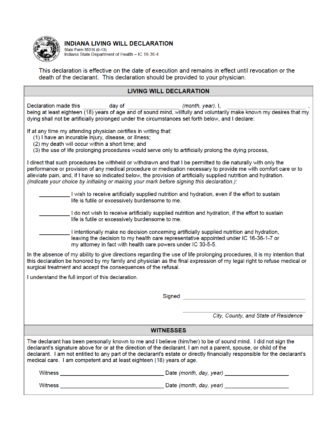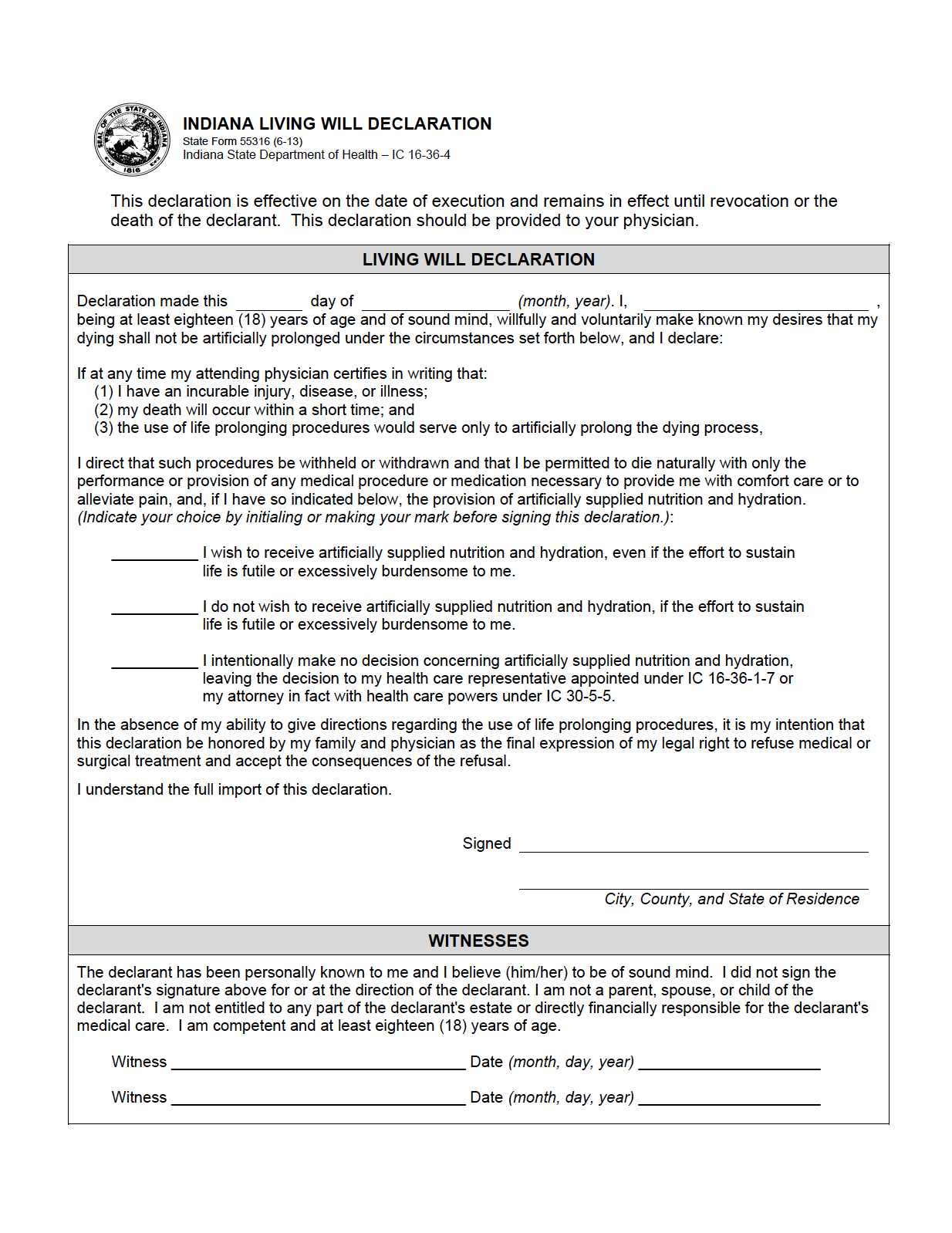Signing Requirements
The appointment of health care representative must be signed by one witness other than the selected representative.[1]
Two witnesses or a notary public need to sign the living will.[2] The witnesses may not be[3]:
- Entitled to the declarant’s estate.
- Financially responsible for the declarant’s medical care.
- The spouse, child, or parent of the declarant.
- The person who signed the document on the declarant’s behalf.
Advance Directive (Preview)
Revocation
The declarant may revoke the living will[4]:
- By a written statement, signed and dated.
- If they destroy the document.
- If they express vocally the intention to revoke it.
The revocation of the living will becomes effective when the attending physician is made aware of it.
As long as the declarant is capable of consenting to health care, they may revoke their representative’s appointment by informing them or the health care provider of the revocation in writing or orally.[5]

